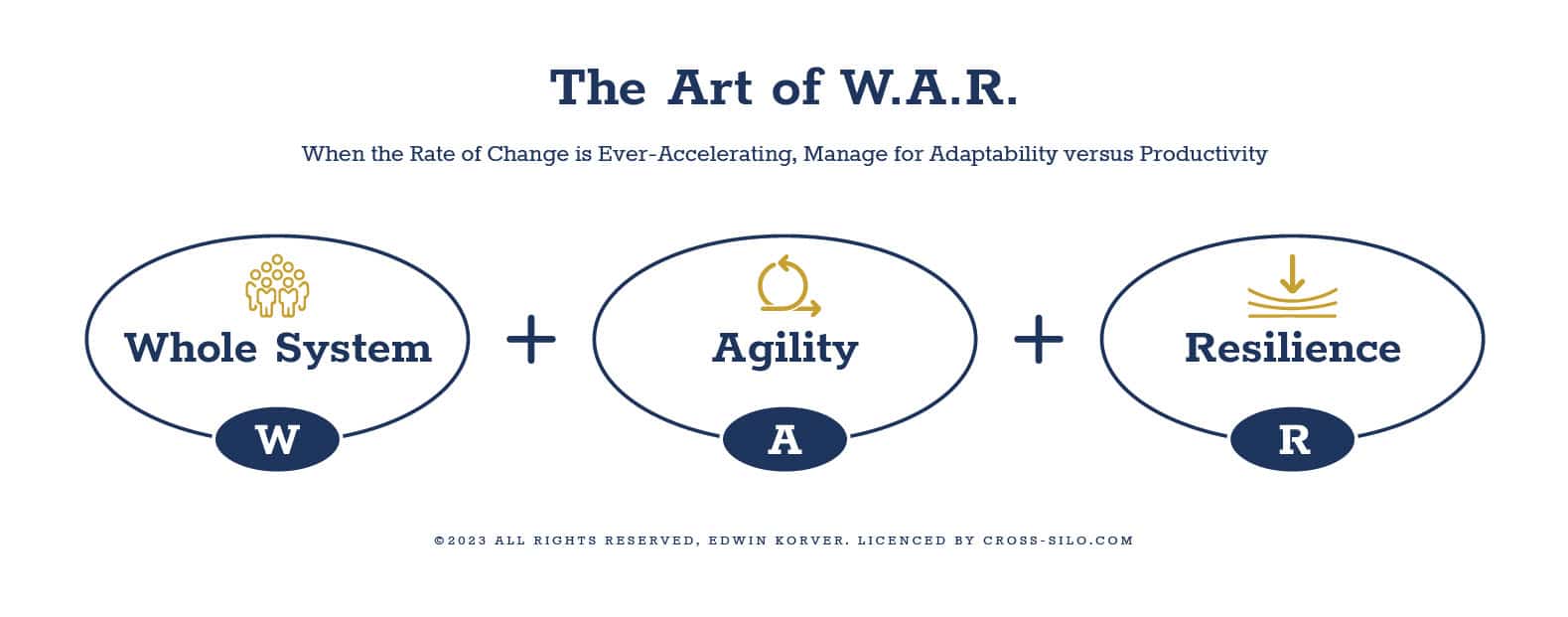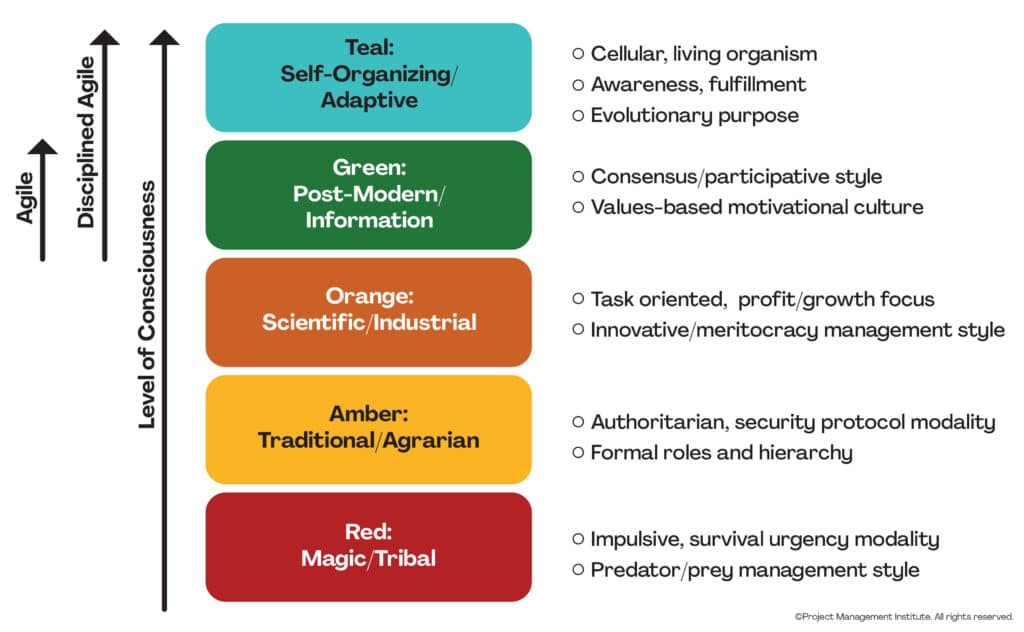In a world of rapidly-shifting sands, the most successful companies are those that are prepared for any eventuality. This ability to adapt and thrive, even in the face of adversity, requires a certain artfulness. We call it the Art of W.A.R. – the mastery of Whole System engagement, Agility, and Resilience. These qualities, championed by the legendary military strategist Sun Tzu, are as relevant today as they were centuries ago.
When the speed of change is ever-accelerating, making the future unpredictable, firms must prepare for the worst.
To do so, history has taught us that firms need to develop three essential qualities:
- Engaging the Whole System: Tapping into the entire organization’s collective intelligence and resources, firms can create a more agile and resilient organization that adapts quickly to environmental changes.
- Moving with Agility: Being nimble and flexible and pivoting quickly in response to changing circumstances. This helps the organization to stay ahead of the curve and stay competitive.
- Building Resilience: Cultivating the ability to withstand and recover from challenges and setbacks.
We call it the Art of W.A.R., referring to the legendary Sun Tzu. Sun Tzu (‘Master Sun’) was a Chinese general, military strategist, and philosopher who lived around the 6th century BCE. His book, “The Art of War,” has become one of history’s most influential military treatises. It’s notable for its practical and timeless tactics, strategy, and leadership advice. The text focuses on using strategy and deception to gain the upper hand in battle. It emphasizes the importance of knowing oneself and the enemy and stresses the value of careful planning and strategic thinking. Sun Tzu’s focus on psychology, leadership, and maneuver warfare has made his ideas relevant to modern-day military leaders, as well as to businesspeople and politicians. He’s been hailed as a master of deception, psychological warfare, and organizational strategy.
As a reminder, here are some of the quotes attributed to Sun Tzu :
- “If you know the enemy and know yourself, you need not fear the results of a hundred battles.”
- “Amid the chaos, there is also opportunity.”
- “Opportunities multiply as they are seized.”
- “He who knows when he can fight and when he cannot will be victorious.”
The New Imperative: Cultivating Adaptive Capacity in an Ever-Changing World
When the speed of change is ever-accelerating, raising the employees’ adaptive capacity (how comfortable an individual is dealing with change or challenges to the status quo) should prevail over raising productivity (the output per unit of labor).
Research confirms that a joint discovery of the root causes of past success, called Positive Inquiry, inspires employees to co-imagine enhanced products and processes, thereby securing the firm’s future.
We will soon explain more about the W.A.R. Zone and why you should have a W.A.R. Council.
The Path to Purpose: A Journey through the Laloux Culture Model
At the heart of the W.A.R. approach lies the Laloux Culture Model, which describes the evolution of organizational culture from “Red” (hierarchical and controlling) to “Teal” (self-managing and purpose-driven). Each culture level represents a distinct stage of evolution, with its own unique challenges and opportunities. Red organizations focus on survival and control, while Teal organizations prioritize purpose, self-management, and wholeness. In between are the Orange, Green, and Yellow stages, each with their own characteristics and challenges.


